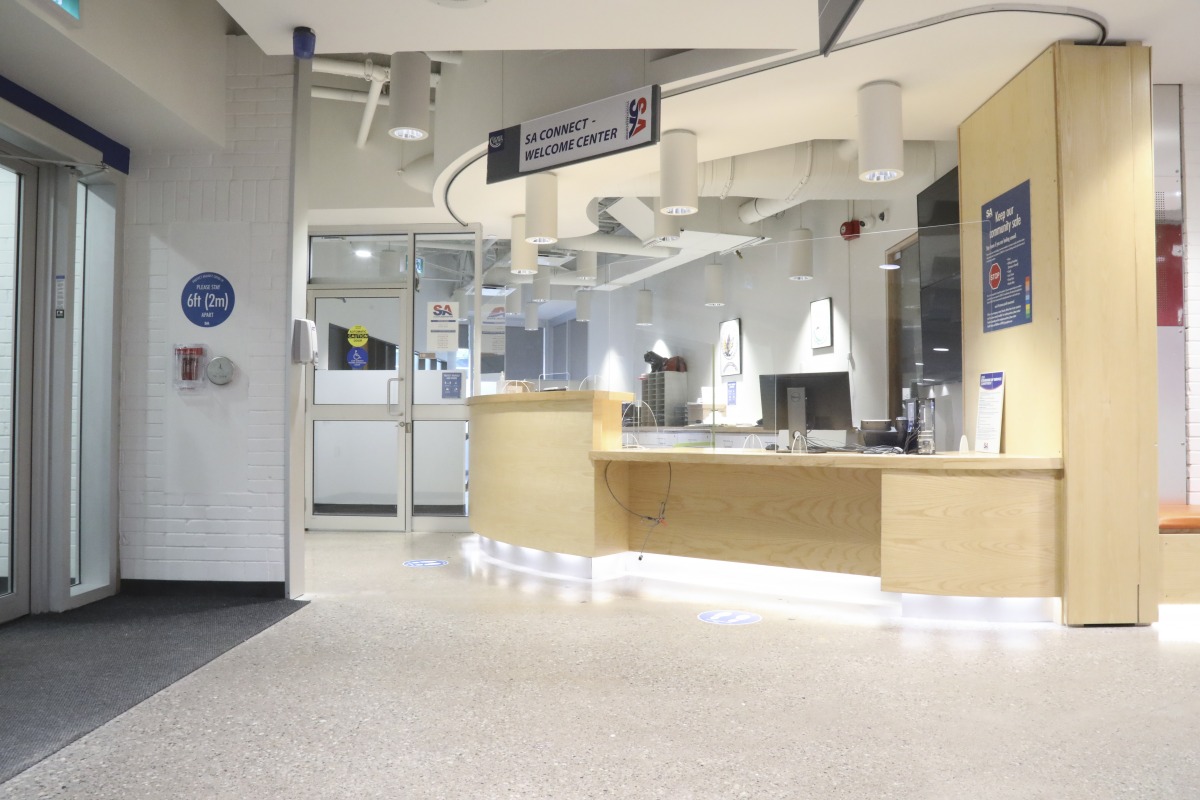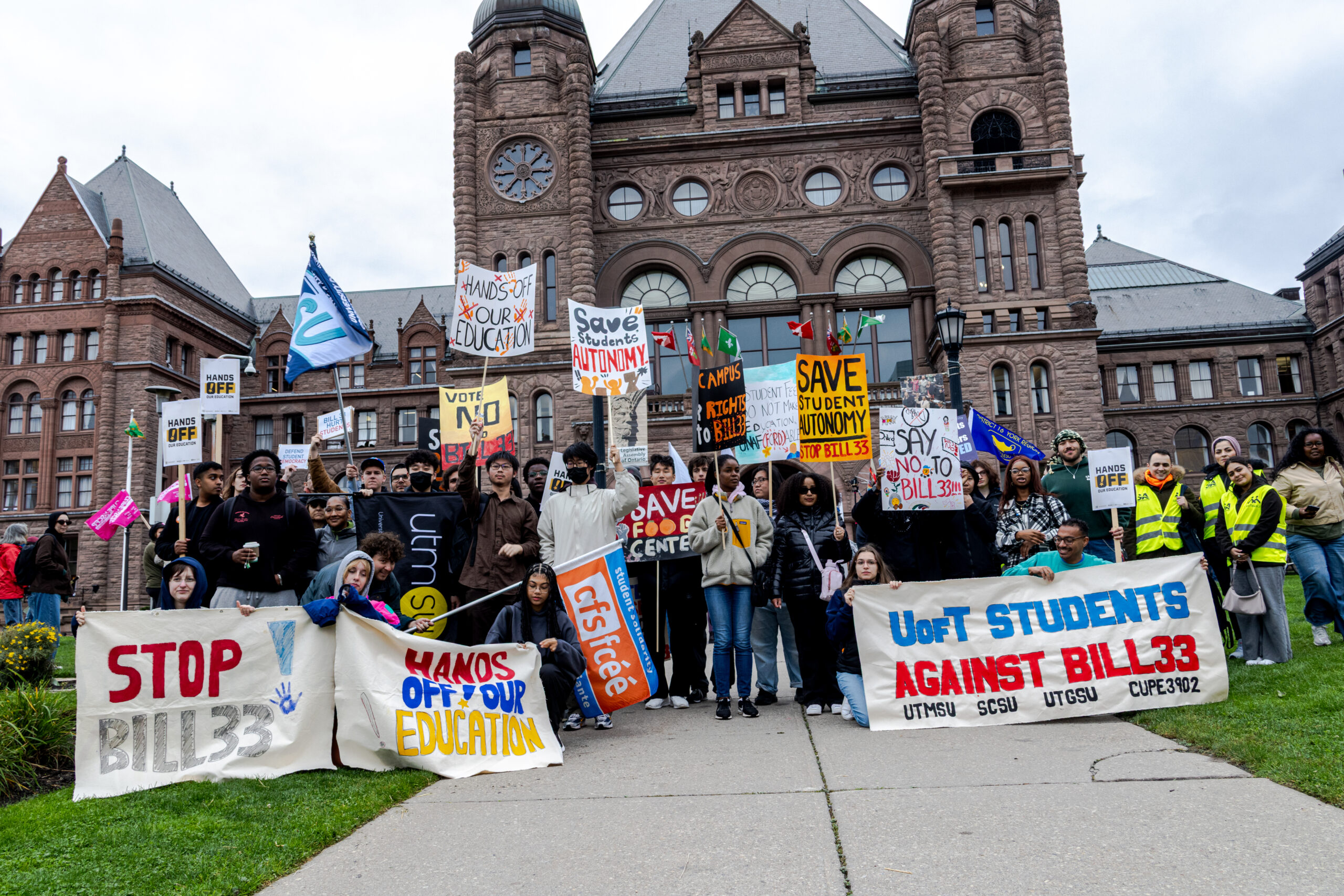One of the latest amendments to GBC Student Association’s bylaws will now require its director of communications and internal and director of operations to be part-time students in order to perform their duties.
The amendment regarding the eligibility and obligations of those two executive positions was passed in the Annual General Meeting of the Student Association when members met virtually on October 14. The amendment won’t apply to the two other executive positions on the board, the director of student experience and the director of education and equity.
The SAGBC funds the Dialog.
Around 100 students, well over the 30 required to meet quorum, attended the meeting, at which all proposed motions were passed.
As well as setting a limit on the allowable course load for the director of communications and internal and director of operations positions, the amendment also raised their hourly pay to $17 and amended their required work hours to 28 hours per week during their term at office.
According to the amended bylaw, these two directors will be allowed to take a maximum of 50 percent of their course load each semester while they are in office.
It is still unclear how this amendment will impact international students who may want to run for office for these two executive positions.
Canadian Study Permit for international students limit their part-time work hours to 20 hours during an academic semester.
Working more than 20 hours per week during an ongoing semester is a violation of the conditions of the study permit and can result in losing student status. The requirement of working 28 hours per week might rule out international students from qualifying for the two SA director positions.
Furthermore, international students who want to apply for their Post Graduation Work Permit are required to be full-time students during the entire length of their program with the exception of the last semester in the program, in the case that they no longer require a full course load to graduate.
This regulation can further complicate matters for international students who might want to run for these two positions at the Student Association and also wish to apply for the Post Graduation Work Permit.
“While the requirements of international students are important to consider, the policy was set based on the needs of the organization,” Charles Wilson, the Chief Returning Officer said to The Dialog.
“For the vast majority of directors’ positions, there is no minimum or maximum course load. The previous policy was that the two most senior board of directors’ position has maximum course load. This creates a part time position but it also creates a part time course maximum.”
“The reality of the position is that there are administrative duties which the membership placed in the students elected which a full time student cannot perform since they would conflict with class schedule. Under the previous by-laws, there would be no ability for a currently enrolled international student to hold these positions,” Wilson added.
Over the past two years, about 90 per cent of the SA board members comprised of international students.
About the upcoming SA elections in November, Wilson said that SA is engaged in a comprehensive marketing and communications campaign regarding the election, and are currently reviewing ways in which socially distant and responsible campaigning can occur.
Another bylaw amendment passed at the AGM will require the director of education and equity and the director of student experience to be enrolled in no more than the required number of courses outlined in their respective programs.
The meeting also saw members approve financial statements prepared by Student Association’s current auditors, Grant Thornton LLP, for the fiscal year ending May 31, 2021.
Kashif Khan, manager of Grant Thornton LLP accounting firm, presented a summary of the audited financial statements for the fiscal year ending in May 31st, 2021 at the meeting.
He informed the members that the total assets for the fiscal year was $20.2 million, whereas the liabilities were $3.4 million.
Khan also mentioned that the total revenue for the fiscal year was $13.9 million, which is lower than the $14.9 million generated in the previous year, partly due to the closure of the college and the Student Association.
He further added that funds raised from Student Association fees also decreased due to lower number of enrolments during the year.
According to the financial statements, total expenses for the year was 12.7 million compared to 12.6 million in the preceding year.
The financial statement mentioned that COVID caused a reduction in revenues and its fuller impact on the financial forecast of SA is yet to be determined.
Khan also stated that the college and the SA have been negotiating a dispute over a holdback of around 900,000 CAD.
“We have a growing concern around GBC holdback of fee transfer to the SA for services rendered to students such as the health and dental plan program,” Sagar Sharma, director of operations of SA said, elaborating on the impacts of the holdback. He also added that SA requires the said funds to settle liabilities.
The meeting began with an address from the college’s new president, Dr. Gervan Fearon.
In his message to students, the president emphasized the importance of diversity among the students at GBC and thanked student leaders of SA for their hard work in representing the interests of the students.
A motion to accept the Annual General Meeting Minutes from the October 22nd, 2020 was also passed at the meeting.
A motion to update the mission statement of SA was also passed. The updated mission statement now reads: “We are committed to supporting each other and the Students of George
Brown College in the struggle for students’ rights, the pursuit of quality education, and the provision of services, in a safe, accessible, and equitable environment.”


